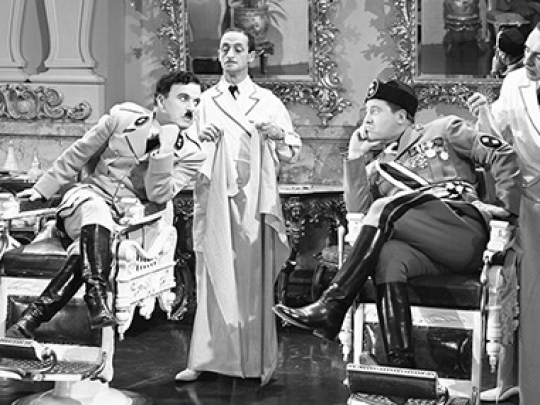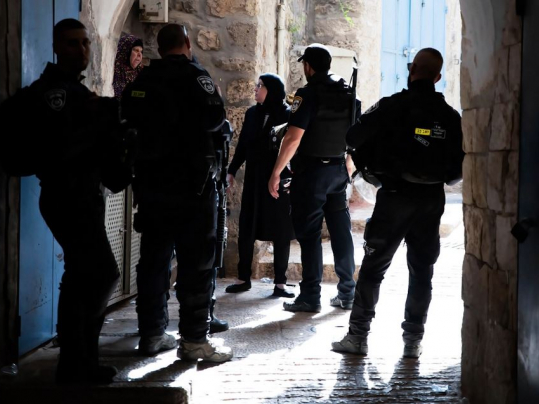Talks With Terrorists 'Bad Idea' But Understanding Their Psyche is Key to Israel's Survival - Expert

Negotiations with terrorists can be interpreted as a sign of weakness, says an Israeli expert, who has interviewed dozens of wanna-be suicide bombers. But at times Israel has no other choice but to take that step.
The trick is that the Jewish state should do it smartly, without putting at risk the country's security and democratic values.
On Monday, reports emerged that Hamas, the Islamic group that controls the Gaza Strip, had reached an agreement with Israel, according to which the organisation would stop sending its incendiary balloons into the Jewish state in exchange for a number of concessions.
These include the opening of the Kerem Shalom crossing that connects the Strip to Israel and enables goods to enter the enclave and the expansion of Gaza's fishing zone to 15 nautical miles.
It has also been reported that Qatar, one of the main mediators between the two sides, agreed to give $30 million to the Hamas leadership in an attempt to buy calm and quiet in the area.
However, it seems that Hamas is not planning to budge that quickly, and despite agreements reached on Monday, Israel registered 15 arson attacks in southern communities close to the Gaza border. All of them were caused by incendiary balloons, the launch of which the Islamic group had promised to stop.
Neither did they cease with their scare tactics and threats. Amid ongoing negotiations, mediated by Qatari and Egyptian representatives, Hamas sent a message to Israel, according to which it planned to step up its attacks on the country's southern communities, if the Jewish state didn't end its siege over the coastal enclave.
"If mediation efforts fail," said Moushir Al Massri, the group’s spokesman, "the Zionist enemy will experience the siege in their bomb shelters. We have nothing to lose... all options are on the table", he continued.
Although the COVID-19 outbreak led to relative quiet on the usually turbulent Israel-Gaza border, tensions have been mounting in recent weeks with Hamas launching incendiary balloons towards the Jewish state's southern communities, triggering dozens of fires per day in the area.
Israel has responded with force to these assaults and in the past couple of weeks it has attacked multiple Hamas targets in the Strip, while simultaneously stepping up mediation efforts through Egyptian and Qatari representatives.
Talks with Terrorists? Bad Idea
But for Dr. Anat Berko, a renowned Israeli criminologist and an author of several best-sellers that deal with the psychology of suicide bombers, sitting down for talks with terrorists is a total mistake.
"When you are a politician or a security agency, negotiations with terrorists is not a good idea," she said over the phone, adding that talks with militants are often interpreted by the other side as a sign of weakness.
Berko is not the only expert to think this way. Ephraim Halevy, formerly head of Israel's spy agency, the Mossad, has previously uttered similar views, but the country's history showed that political circumstances often outweigh the warnings of the security apparatus.
Such was the case in 2005, when then-Prime Minister Ariel Sharon decided to pull out from Gaza and dismantle the 22 Jewish settlements dispersed around the enclave.
And such was the case, when years later, Prime Minister Benjamin Netanyahu inked a deal with Hamas, agreeing to release over a thousand Palestinian prisoners in exchange for Gilad Shalit, an Israeli soldier captured by the Islamic group in 2006.
Now, it seems, Israel is doing it once again, sitting down for talks with Hamas in an attempt to buy quiet.
Understanding Their Psyche
Although Berko doesn't seem to believe in such tactics, she does think it is important to talk to terrorists "as researchers", because that will eventually help Israel understand the way they think and potentially prevent future attacks.
"You need to understand what sort of people they are, how they think and what can influence them, simply because you cannot combat terror without understanding how they make decisions or how they justify the killing of innocent people," said the expert, who has led multiple conversations with would-be suicide bombers in Israeli jails.
To get the most out of these talks, Berko suggests to connect to the terrorist, speak to them eye-to-eye and put all prejudice aside.
At the same time, it is also important to isolate them to make sure they do not spread their poisonous ideology among other inmates.
The problem, says Berko, is that Israel doesn't stick to this rule, creating relatively comfortable conditions for its Palestinian inmates.
Apart from the fact that terrorists who serve their sentence in Israeli jails have access to education and entertainment, they are often placed in cells based on their affiliation, and that creates a situation where militants are empowered, instead of being broken.
That empowerment also comes from Israel's legal system. Traditionally associated with its fight for the rights of the weak, the country's judiciary is often blamed for taking the side of Palestinians and for neglecting the Jewish state's need to defend itself in the face of terror.
The most recent example for this took place in the beginning of August, when the High Court decided to halt the demolition of a house belonging to the terrorist that killed Amit Ben Yigal, an Israeli solider whose skull had been smashed by a cinder block, sparking condemnation and protests around Israel.
"In Israel we have an ethic code. But that doesn't mean we should make compromises on our security. Right now, the Jewish state fights terror with only one hand, because the other one is tied behind the back, limited by the High Court. That, however, might eventually backfire because terrorists use our democracy against us and we need to be very careful not to let it happen".
- Source : Sputniknews.com


















